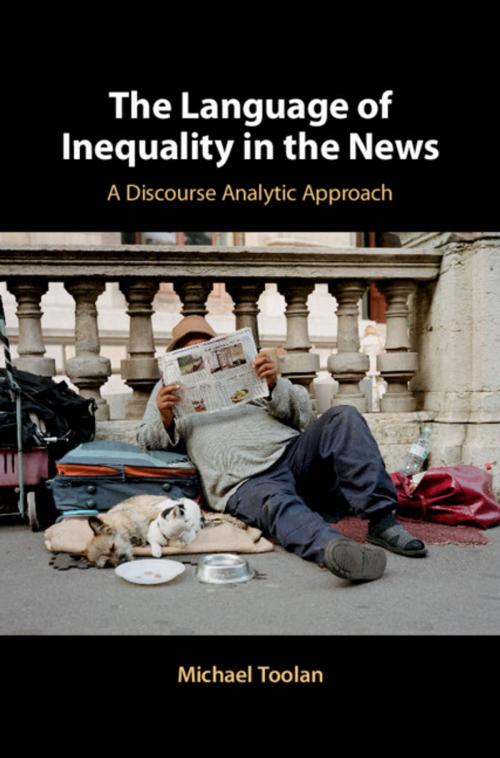The Language of Inequality in the News
A Discourse Analytic Approach
Nonfiction, Reference & Language, Language Arts, Linguistics, Social & Cultural Studies, Social Science| Author: | Michael Toolan | ISBN: | 9781108590563 |
| Publisher: | Cambridge University Press | Publication: | December 6, 2018 |
| Imprint: | Cambridge University Press | Language: | English |
| Author: | Michael Toolan |
| ISBN: | 9781108590563 |
| Publisher: | Cambridge University Press |
| Publication: | December 6, 2018 |
| Imprint: | Cambridge University Press |
| Language: | English |
Why in the early 1970s does The Times reject the idea of a national lottery, as rewarding luck not merit and effort, but warmly welcome one by the 1990s? Why in the 1970s do the Daily Mail's TV reviews address serious contemporary themes such as class- and race-relations, whereas forty years later they are largely concerned with celebrities, talent shows, and nostalgia? Why does the Conservative Chancellor in the 2010s mention 'Britain' so very often, when the Conservative Chancellor in the 1970s scarcely does at all? Covering news stories spanning fort-five years, Michael Toolan explores how wealth inequality has been presented in centre-right British newspapers, focusing on changes in the representation may have helped present-day inequality seem justifiable. Toolan employs corpus linguistic and critical discourse analytic methods to identify changing lexis and verbal patterns and gaps, all of which contribute to the way wealth inequality was represented in each of the decades from the 1970s to the present.
Why in the early 1970s does The Times reject the idea of a national lottery, as rewarding luck not merit and effort, but warmly welcome one by the 1990s? Why in the 1970s do the Daily Mail's TV reviews address serious contemporary themes such as class- and race-relations, whereas forty years later they are largely concerned with celebrities, talent shows, and nostalgia? Why does the Conservative Chancellor in the 2010s mention 'Britain' so very often, when the Conservative Chancellor in the 1970s scarcely does at all? Covering news stories spanning fort-five years, Michael Toolan explores how wealth inequality has been presented in centre-right British newspapers, focusing on changes in the representation may have helped present-day inequality seem justifiable. Toolan employs corpus linguistic and critical discourse analytic methods to identify changing lexis and verbal patterns and gaps, all of which contribute to the way wealth inequality was represented in each of the decades from the 1970s to the present.















